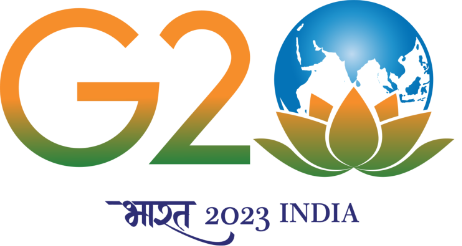PM Modi has voiced concern over the misuse of darknet, cryptocurrency, and related technologies by terror groups.
During its G20 presidency, India called for an agreed standard for crypto currency recovery mechanism to deal with assets of fugitives and economic offenders; however, the matter could not be taken to its logical conclusion due to some members’ pleas for more discussions on the matter, said an official.
Despite that India can take credit for achieving a consensus and paving the way for outlining the building blocks for a “risk-proof” global regulatory framework for crypto assets.
“There was lack of unanimity on some aspects of the crypto asset recovery mechanism… the issue will be debated in future working groups,” said an Indian representative sharing the outcomes of the G20 Anti-Corruption Working Group (ACWG).
Notably, Prime Minister Narendra Modi, too, has frequently voiced concern over the misuse of cryptocurrency, darknet, metaverse and related technologies by terror groups for collecting and parking funds needed for radicalisation.
According to World Bank estimates, cyber-attacks between 2019-2023 led to a global loss of $5.2 trillion. Apart from inflicting financial loss, cyber-crimes have far-reaching geopolitical implications, said Modi.
On the progress made over cryptocurrency issue at G20, an official said, an “IMF-Financial Stability Board Synthesis Paper” will be taken up leaders. The paper was prepared under the initiative of the G20 Finance Ministers and Central Bank Governors.
In the area of steps to improve recovery of fugitives’ assets (other than those in the form of digital currency), a big stride was taken during the G20 meetings when contours of a consensus document were agreed upon with focus on “non-conviction-based confiscation of assets”, said an Indian official.
“An in-principle agreement was also arrived at on the need to have integrity standards to fight corruption. Audit standards were discussed as a tool to detect and prevent corruption and structures of audit institutions were also examined,” said the official.
Sharing the Indian experience in dealing with economic offenders and fugitives, the Department of Revenue figures were also mentioned during discussions with other delegates of the working group.
Between 2014-2023, the Indian government recovered $1.8 billion from fugitives and economic offenders and attached $12-billion worth illegal assets under the PMLA.
Under India’s G20 presidency, the member nations agreed to set up an ACWG committee to formulate common parameters that would be acceptable to all nations while dealing with such fugitives and economic offenders.
These set of rules will prevail regardless of the law prevailing in the country where a fugitive has taken refuge, said an official. “Now, there is consensus on non-conviction-based confiscation of assets” of economic offenders and fugitives, pointing that the US, China and even the EU have endorsed this line of approach, fine-tuned during India’s presidency of G20.
“We want to convince all nations that it is not just an India-specific issue, but even they will also face similar problems,” said a government source. “Initially, all the countries were not keen but they gradually agreed with India’s views,” he said.
During the pre-Summit discussion, the ACWG also prepared an accountability resource to bring on record what member nations did to previously negotiated principles, said an official.
Officials who represented India during ACWG meetings said significant progress was made on anti-corruption cooperation regarding action against fugitive economic offenders and the return of assets, guided by the “Nine Point Agenda for Action Against Fugitive Economic Offences and Asset Recovery”, presented by Prime Minister Modi to G20 nations in 2018.
Highlighting the importance of timely asset-tracing and identification of proceeds of crime, the Prime Minister stressed the need to encourage countries to enhance their domestic asset recovery mechanisms. He suggested that G20 countries can set an example by using non-conviction-based confiscations to expedite the recovery of foreign assets and said that it will ensure swift return and extradition of criminals after the due judicial process. “It will send a strong signal about our joint fight against corruption,” he emphasised.

